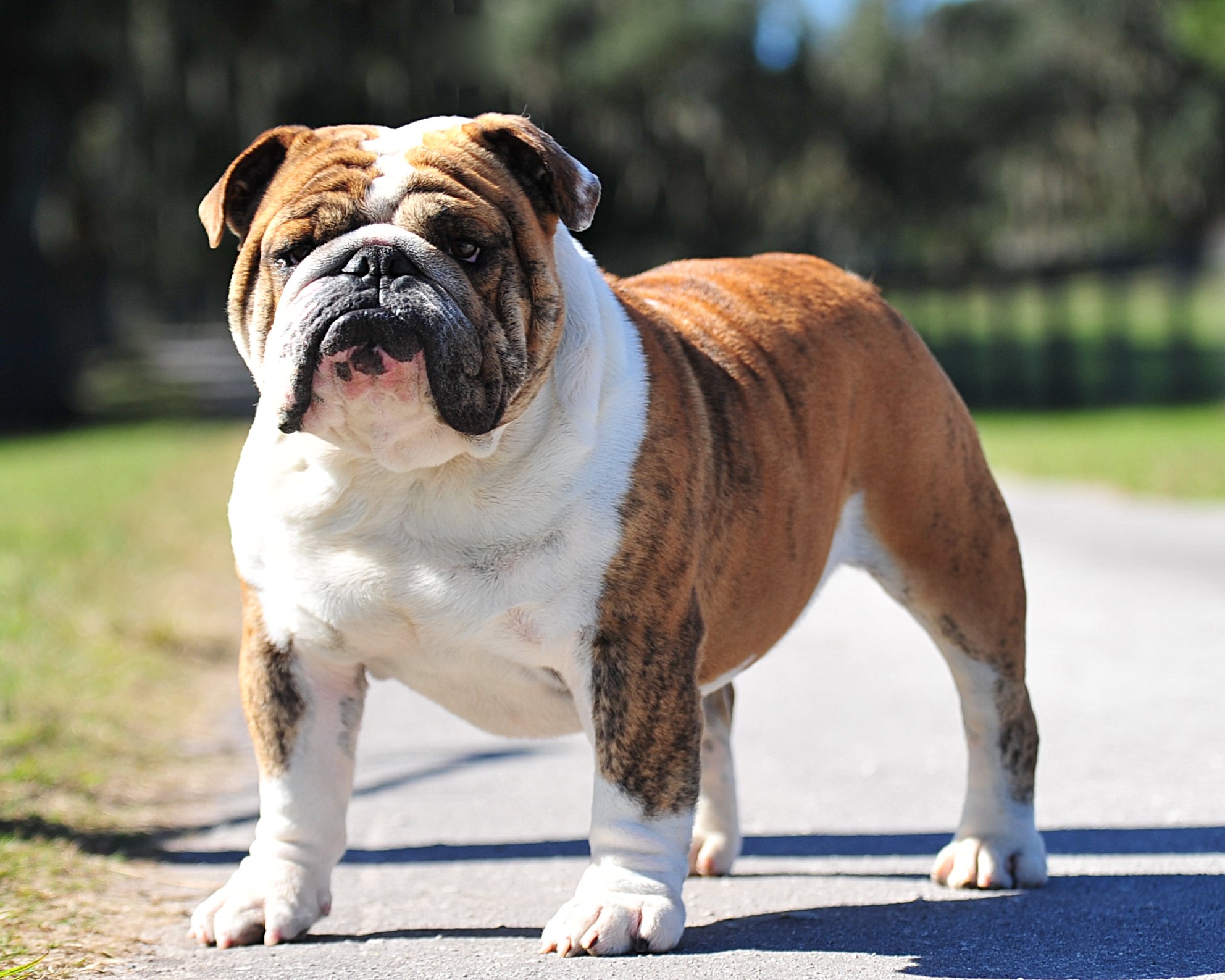Bulldogs and Their Bond with Humans: A Complex Interplay of Love, Loyalty, and Responsibility
The intricate bond between Bulldogs and humans transcends superficial appearances, navigating through historical, behavioral, and societal influences. This bond is characterized by unwavering loyalty, unconditional love, and a shared responsibility that requires critical examination and understanding.
Historical Context: The Legacy of Bulldogs
The distinctive history of Bulldogs has shaped their relationship with humans. Originating as working dogs in England during the 16th century, Bulldogs were prized for their strength, courage, and tenacity in the gruesome sport of bull baiting. Their broad chests and muscular bodies allowed them to withstand the brutal charges of bulls, earning them the reputation as fierce and fearless companions.
Innate Characteristics: The Essence of Bulldogs
Bulldogs possess inherent qualities that contribute to their deep bond with humans. Their gentle and affectionate nature, combined with their playful demeanor, makes them excellent family pets. Their unwavering loyalty and protective instincts render them devoted guardians, while their intelligence and trainability make them eager to please their owners.
Behavioral Considerations: Understanding Bulldog Nature
Despite their lovable personalities, Bulldogs require specific care and socialization to thrive in human companionship. Their strong-willed nature can lead to stubbornness if not handled with patience and consistency. Their need for exercise and mental stimulation should be met to prevent boredom and destructive behaviors.
Societal Perspectives: The Role of Bulldogs in Culture
The perception of Bulldogs has undergone significant shifts throughout history. Their association with violence and aggression in the past has gradually given way to an appreciation of their gentle and playful nature. However, certain stereotypes persist, leading to misconceptions about their suitability as companions.
Ethical Considerations: The Responsible Bulldog Owner
Owning a Bulldog entails a profound ethical responsibility. Breeders must prioritize health and temperament in their breeding practices to minimize genetic predispositions to health issues. Owners must provide adequate care, nutrition, and veterinary attention to ensure the well-being of their pets.
Unconditional Love: The Heart of the Bulldog-Human Bond
At the core of the Bulldog-human bond lies unconditional love. Despite their occasional stubbornness or mischievousness, Bulldogs display remarkable affection and devotion towards their owners. This love is often expressed through wagging tails, warm embraces, and eager anticipation for attention.
Shared Responsibilities: A Mutually Beneficial Partnership
The bond between Bulldogs and humans is a two-way street. Owners have a responsibility to provide a safe, loving, and stimulating environment for their pets. In return, Bulldogs offer companionship, unwavering loyalty, and a profound connection that enriches human lives.
Conclusion: A Bond Rooted in Complexity
The bond between Bulldogs and humans is an intricate tapestry woven from historical influences, innate characteristics, behavioral considerations, social perceptions, ethical responsibilities, and unwavering love. Understanding the complexities of this bond is essential for fostering meaningful and fulfilling relationships between these loyal and affectionate companions and their human counterparts.
The examination of the Bulldog-human bond has broader implications for our understanding of the human-animal relationship. It highlights the need for responsible pet ownership, the importance of addressing breed-specific characteristics, and the transformative power of love and companionship. By embracing the complexities of these bonds, we can create a more harmonious and compassionate world for both humans and animals alike.
Why Labrador Retrievers Are The Ultimate Family Dog
Why Asian Semi-longhair Cats Are A Rare Treasure
The Lifespan Of Aegean Cats And How To Keep Them Healthy
:max_bytes(150000):strip_icc()/8_Loyalty-5b32e6dbc9e77c00382f4581.jpg)


